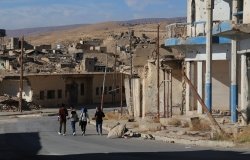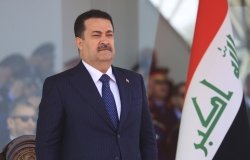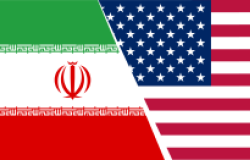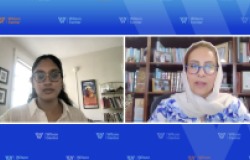The Culture of Death: Terrorist Organizations and Suicide Bombing
Ami Pedahzur, Deputy Chair, National Security Studies Center, Haifa University; currently the Donald D. Harrington Fellow, University of Texas at Austin.Co-sponsored with the the RAND Corporation and the U.S. Army's Eisenhower National Security Series.
Overview
This meeting, jointly sponsored by the Woodrow Wilson Center's Division of International Studies and Middle East Program, the RAND Corporation, and the U.S. Army's Eisenhower National Security Series, was part of an ongoing series on terrorism and homeland security.
Dr. Pedazhur's presentation emphasized the instrumental nature of suicide terrorism. Terrorist organizations employ this horrific tactic because their leaders believe that it is an effective instrument in furthering their political objectives. Suicide terrorism is used not only to destroy a specific target, but, more broadly, with the intention of creating an atmosphere of terror. The terrorists are motivated by the belief that the collective public anxiety generated by suicide bombings will translate into political gains for their organizations.
Suicide bombing as a phenomenon has grown exponentially over the last twenty years – from one occurrence in 1982 to seventy-one in 2003. (The data for 2004 are still being compiled.) The Middle East has experienced the sharpest rise in suicide terrorism in recent years and is now perceived as a Middle Eastern phenomenon linked to Islamic extremism. But Pedahzur noted that suicide terrorism is not solely an Islamic phenomenon. It gained prominence as a tactic not in the Middle East, but in Sri Lanka by Tamil separatists, and has also been employed on occasion by secular groups, such as the Palestinian Fatah, a nationalist organization.
Drawing on his comparative case studies, Dr. Pedahzur said that 95% of suicide attacks worldwide were initiated by organizations (not by individuals or so-called "lone wolfs"). A successful suicide campaign requires individuals willing to perpetrate the acts, but also a community that will support them. Hence, according to Pedahzur, the terrorist organizations have glorified suicide missions and have sought to create "a culture of death" within the community. They do so by capitalizing on the community's objective or subjective belief that it is the target of discrimination and violence, and the resulting sense of hopelessness and powerlessness. The terrorist organizations promote suicide terrorism as a mechanism to empower these disaffected communities.
Dr. Pedazhur concluded that suicide terrorism has worked in the past. It drove the United States, France, and Israel from Lebanon in the mid-1980s, and will be continue to be employed by groups when they believe it will be effective. Conversely, suicide terrorism will decline in incidence when the terrorist organizations conclude that it is not effective as an instrument or if its employment will undercut their political agenda.
This summary is drawn from Dr. Pedahzur's power point presentation. The full powerpoint presentation is available for download in the See Also box to the right of this screen.
Documents & Downloads
Hosted By

Middle East Program
The Wilson Center’s Middle East Program serves as a crucial resource for the policymaking community and beyond, providing analyses and research that helps inform US foreign policymaking, stimulates public debate, and expands knowledge about issues in the wider Middle East and North Africa (MENA) region. Read more
Thank you for your interest in this event. Please send any feedback or questions to our Events staff.










